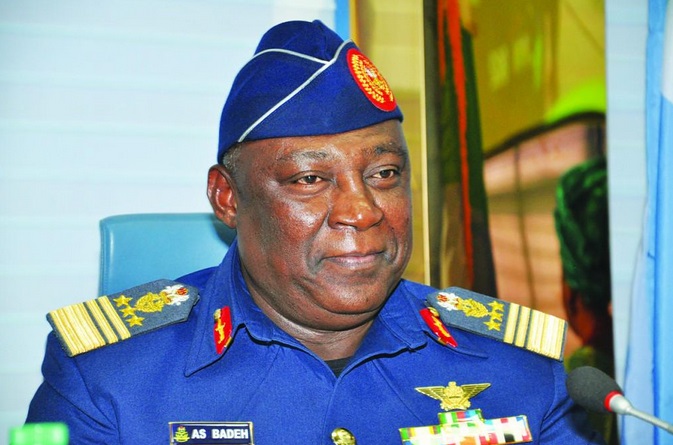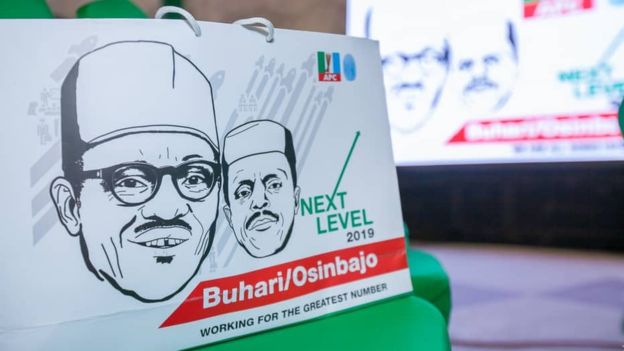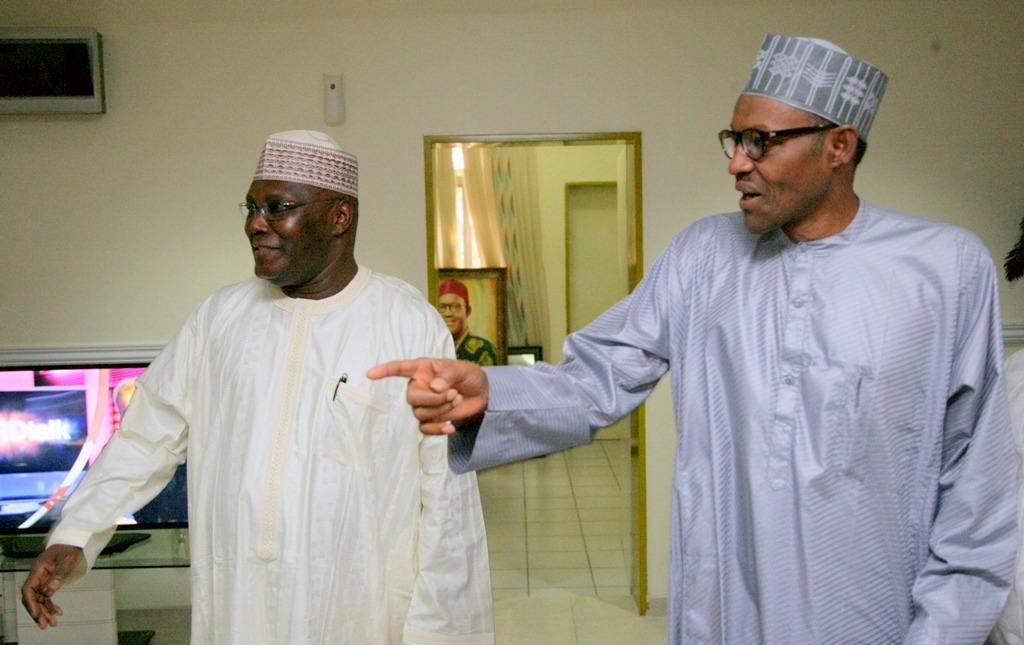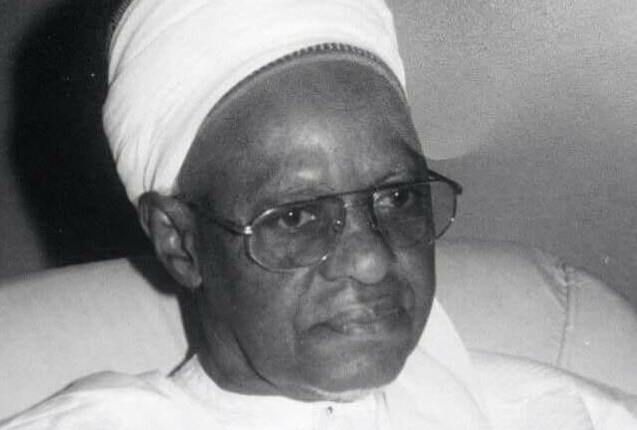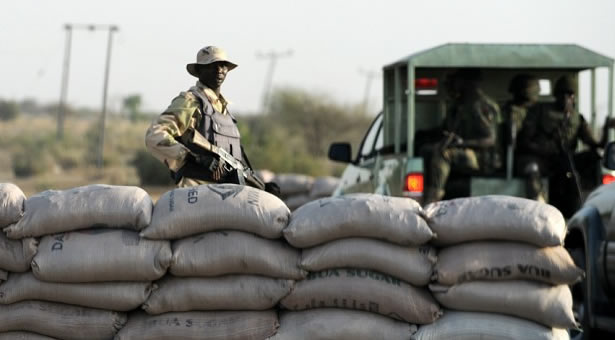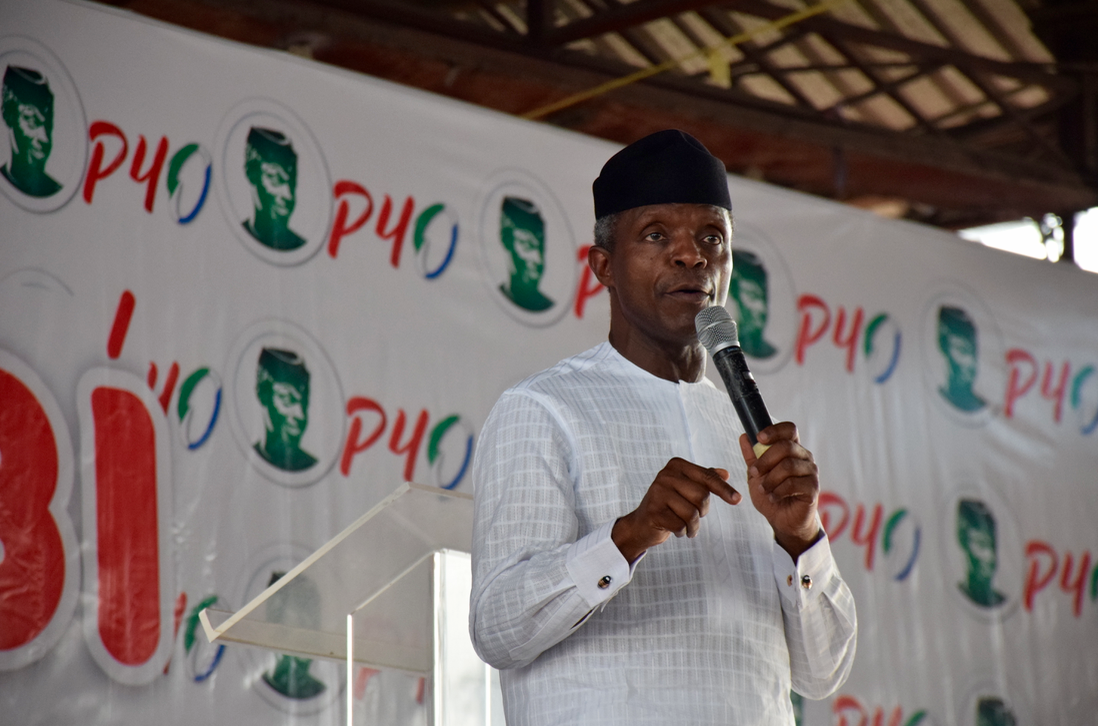The gory pictures of General Idris Alkali in soiled shroud as he was ferreted out of the shallow well his traducers dumped him and General Alex Badeh, felled by evil doers will forever prey on the minds of their families and friends. The Nigerian Army, after weeks of searching for the remains of Retired General Alkali, had discovered his body in a shallow grave at a place called “No man’s land” in a community called Lafande.
He had been killed on September 3, 2018 on the outskirts of the Jos metropolis, in Dura-Du District of the Jos South Local Government by irate youths while travelling in his Toyota Corolla car. Not even his self recognition as a retired General could save him from these cousins of beasts. According to reports, he was waylaid on the road, ostensibly killed in the process and his body dragged into a disused well, as well as his car. It took weeks of searches for him by a scandalized Nigerian military before his decomposing remains were fished out of the well.
There has been so much fuss on the part of the military thereafter, apparently egged on by the passion of military espirit de corps and the anger that a band of felons could peremptorily take the life of a General with such blandish impunity. Some persons have been arrested, preparatory to being charged to court. This has however not obliterated the fact that such an Iroko tree among the ranks of Nigeria’s establishment, a top-notch member of the Nigerian ruling class, was killed like a common chicken on a festive day.
A couple of weeks ago, the world was aghast at the killing of General Badeh, specifically on December 18, 2018. The ex-Chief of Defence Staff was shot dead by unknown gunmen along Abuja-Keffi Road. The Nasarawa State Police Command only last week said that five suspects had been arrested in connection with the killing. One of the suspects, Shuaibu Rabo, in a confessional video, had claimed that Badeh’s killing was because he resisted attempt to rob him of a huge sum of money which was meant for the purchase of a parcel of land.
Advertisement
However, only two days ago, an associate of the ex-CDS, according to a newspaper report, dismissed this so-called confession as manipulated. Badeh was very broke, he had countered. According to the newspaper, another friend of the late CDS, had told it that Badeh was on the verge of declaring for the Peoples Democratic Party. Permit me not to read motives into these very incongruous claims by police and Badeh’s friends.
Those who knew Badeh said he was a fine officer and a gentleman. Naturally, callous and ostensibly politically motivated commentaries which denigrated him for his role in the current spate of insurgencies simultaneously sprung up in the media. You will recall that Badeh was embroiled in allegations of embezzlement of arms procurement funds under Goodluck Jonathan. By the time of his death, he was struggling to wriggle out of a charge of stealing billions of Nigeria’s security funds. As an officer who spent about 35 years of his life in the service of Nigeria and a career which lays store by integrity, Badeh must have lived a very miserable life post-being charged for these shameful allegations.
If the dead have moments of regret, what must have made Badeh more miserable is the fact that he died condemned in the court of public opinion – in a Nigeria where, forget the jurisprudential claim of its legal philosophy that entails being perceived as innocent until the reverse is proved. His children and family may forever carry the smudge of the allegations which must have dulled his gallantry in his decades of serving the military and the country.
Advertisement
And so Badeh’s gory pictures, felled like a common criminal, his body pockmarked by irreverent bullets, became a chattel upon which the world feasted its eyes on the social media. I told some friends that the lacerating, yet penetrating spots on the felled General’s stomach reminded one of pictures of armed robbers executed in the 1970s and early 1980s which adorned front pages of Nigerian newspapers. It is a cruel fate that a man who fought wars and came out unscathed could be that killed in a manner reminiscent of the death of a vagrant.
A few days ago, I was in a discussion with a teacher friend who, not too long ago, taught Badeh and some other military officers in Strategic Studies class. Not fazed by the huge presence of big-epaulettes officers in his class, the friend said when he makes his first entry into those class sessions, what he did was to first defoliate the officers of the majesty of their individual attainments as members of the Nigerian ruling class, many atimes to the consternation and bewilderment of the officers.
“Who is the most powerful man in the world?” my teacher friend said he begins those lectures with. I laughed as he began the rendition. It reminded me of sometime in November, 1988, as a new student of Philosophy at the University of Lagos. The lecturer, then Mr. Igwe, who I learnt is late now, had asked us, students, “Who is your father?” We were astounded, horrified and disgusted. What has this got to do with the lecture? Was this Philosophy? Confidently and perhaps diffidently too, many of us proudly announced our illustrious fatherhood. He smiled mischievously like a malevolent executioner and quipped magisterially: “Do you know that that man you call your father may actually not be the one who fathered you?” Having released the bomb, he walked away like a malicious viper, satisfied he had defused the thinking bomb in the new students of his Critical Thinking class.
Sorry, I digressed. So, my friend asked Badeh and company who the most powerful man in the world was. His military top brass students must have felt insulted by such seemingly infantile inquisition. One of them, after an apparently disdainful slur, eventually volunteered the name of Barrack Obama, being America’s President at the time. Good, my friend retorted. He had another rhetorical question in wait for them. Did they think Obama was the most powerful man in the world because he was the richest man on earth? They chorused No. Or that he owned the hugest of mansions in the world? Again, No, they said.
Advertisement
Obama or any President of America would be the world’s greatest man on account of America’s great institutions and the awesome powers of its bureaucracy. This is why Donald Trump struts all around the world with the ego of a turtle dove, even though his presidency has not only deconstructed American presidency as capable of being occupied by even common scalawags as we do have in Africa.
The converse of that narrative is that the smallest man or country in the world is one whose institutions and governmental architecture are as immobile and messed up as Nigeria’s. We may, as a people, envy Muhammadu Buhari and dress him in that imposing and benumbing shibboleth of the Commander in Chief of the Armed Forces but outside the shores of Nigeria, especially at moments when he is unequally yoked with real great leaders of the world, he is put in his rightful place as a tiny minuscule in the ranking of powerful men in the world. You can’t be the President of a thoroughly emasculated country like Nigeria which has scanty respect of the rest of the world for its broken down institution and scant capacity to perform the tiniest intervention in the lives of your people and yet secure the respect of the rest of the world.
While Badeh and Alkali were alive, they could never have fathomed that a day would come when some felons would audaciously penetrate the security cover which the state shawls them with and snuff life out of them in such horrendous manner. If they did, they most likely would have sought the strengthening of Nigerian institutions – security, electoral, economic and all that. And seek less the ascendancy of selves in national equations. Let us imagine that the allegation against Badeh of scooping those billions of commonwealth into personal pouch was true, could those personal wealth and amassment have saved him from the helplessness of Nigeria’s indolent security structure, at a time when those miscreants demanded his life? If Alkali had joined the chorus for the deployment of government resources into necessary troves, taking into consideration his position as a major matrix of the ruling elite while in service, would he be killed like a common thief as those miscreants did?
If only we all knew that a great Nigeria is in our individual and collective interests, we would do less of subverting her by stealth. I was told of a major supplier of oxygen to a national hospital who used to shortchange the system. Many times, he peremptorily declined to supply oxygen as at when agreed with him. One day, he ran to the hospital to be confronted with the lifeless body of his mother. She had been rushed to the hospital upon a sudden seizure. Unfortunately, the usual lackadaisical attitude of Nigerian hospital attendants, as well as absence of oxygen to rescue his mother, was her nemesis. If he had known, he would have kept faith with his charge; perhaps his mother would have lived.
Advertisement
In our individual ways, we all contribute to the stultified growth of the pigmy called Nigeria that we now castigate. The lecturer who subverts academy to make quick money; the journalist who collects bribe to adorn bad people in whitewashed robes; the contractor who shrinks budgets so as to amass enough cash and the government official who collects bribe on contracts, with the result of a haphazardly executed project. Let them send their children to Johns Hopkins University and watch as our public universities turn into rat holes. Their well-trained children will someday come back here and get killed by our miscreant children who should have attended those public universities. We will all suffer for every tissue of our subversion of the system. Indeed, we are right now.
So, nobody should make any homily to those who are destroying this country – all of us. We will meet the country we created in full throttle. If Badeh, Alkali and other victims of a Nigeria they created had known, they would have lent a helping hand to the call for restructuring of Nigeria to a land we can all be proud of.
Advertisement
Goodnight, Mamalawo, our Socrates
This day in 1988, a downcast me looked forlorn at the sky. There was no hope that I could ever attend a university. I had been a serial candidate of the Joint Admissions and Matriculation Board (JAMB) examinations. I had written them about three times and there was no dice, as Americans say. I kept on performing woefully. In 1985, after I flunked it as usual and desirous of being in a higher institution by all means, I had frustratingly headed for the Esa-Oke campus of the then Ibadan Polytechnic to study Secretarial Administration. I kept faith with my JAMB nemesis while I banged the keys of Olympia typewriter under the tutelage of Mr. Tunji Ajayi and other lecturers who taught us the nitty-gritty of being secretary.
So as the result of my flunking the JAMB examination again this day in 1988 was announced, it was as if the end had come for me. A friend of mine, Olalekan Odubade, aware of my frustration, one day ran down to my home at Ayeso, in Ilesha, now Osun State. A lecturer in the University of Lagos, in the department I made my first choice – Philosophy – attends his church, Methodist Church, One Ese. Could he relay my frustration to her? I gave my friend the go-ahead. So he told the woman after church service, he said and she requested for my details. A few weeks after, my letter of admission to her department was ready, hand-delivered to me by her. That was how Professor Sophie Oluwole became my God-sent angel. I am not sure if my frustration, which was becoming very debilitating, would not have resulted in something else if Oluwole had not intervened.
Advertisement
Throughout my four-year study in the department, Mama, as we called her, didn’t even remember what she did in my life. After the first day of my resumption in the school when I went to thank her, she never took note of me thereafter. She taught me African philosophy, metaphysics, alongside other lecturers like Tanu de Peter Bah, Cambell Shittu Momoh, Kolawole Ogundowole, Joseph Omoregbe and others.
Countless times, guests to the department who saw Mama walk barefooted on the corridors of the faculty mistook her for one of the cleaners. She propounded an African philosophy hinged on age-long teachings of pre-colonial Africa which was a contradistinction to the Africa which Eurocentric historians and philosophers claimed was a dark continent. Her thesis on Orunmila as predating the Socratic tenets is legendary. In her adumbrations, caked highly by her Igbara-Oke, Ondo State accent, she belonged to a philosophical school of the Kwasi Wiredus and Pauline Hountondji. Her proffer was that Africa was doing herself a whole lot of damage by inculcating wholesale the teachings of the West into her existence and philosophy without flavouring it with Africa’s cultural and religious beliefs. She taught that if we must leave this bind that we found ourselves, we must retrace our steps from the entanglement of foreign and alien thinking which represents the values of Western traditions that can never be solutions to our developmental stagnancy.
Advertisement
A little over two years ago, Professor Oluwole and I had met in Lagos at the launch of a book written by Professor Bolanle Awe, another iconic matriarch. I walked up to her to introduce myself as that boy of over twenty years ago she ensured he went to the university. Like a typical grandma in the village, she had looked expressionless and hit the back of her right hand palm on the orifice of the left and said, “I did what God asked me to do.” He was however happy that I had amassed some intellectual flesh since leaving the University of Lagos.
I mourn the passage of the woman angel my Creator sent to me. Goodnight, our own Socrates.
Views expressed by contributors are strictly personal and not of TheCable.
Add a comment

